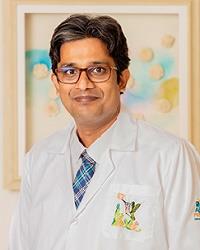Best Doctors for Lymphoma in Chennai
Lymphoma is a type of cancer that originates in the lymphocytes, or white blood cells, which are part of the lymphatic system, a network of organs, vessels, and lymph nodes that work with the immune system. This disease arises from genetic alterations within these cells, triggering their uncontrolled growth and multiplication. The two main types are non-Hodgkin lymphoma (NHL), the more prevalent type where abnormal cells gather in the body’s lymph nodes, and Hodgkin lymphoma (HL), often referred to as Hodgkin’s disease, which primarily starts in a specific B cell located within the bone marrow.
The specialists at Apollo Hospitals in Chennai offer comprehensive care for lymphoma patients, addressing this significant health concern. The hospital is renowned for its best doctors, who specialise in lymphoma treatment, dedicated to delivering optimal patient care.






 Call Now
Call Now




